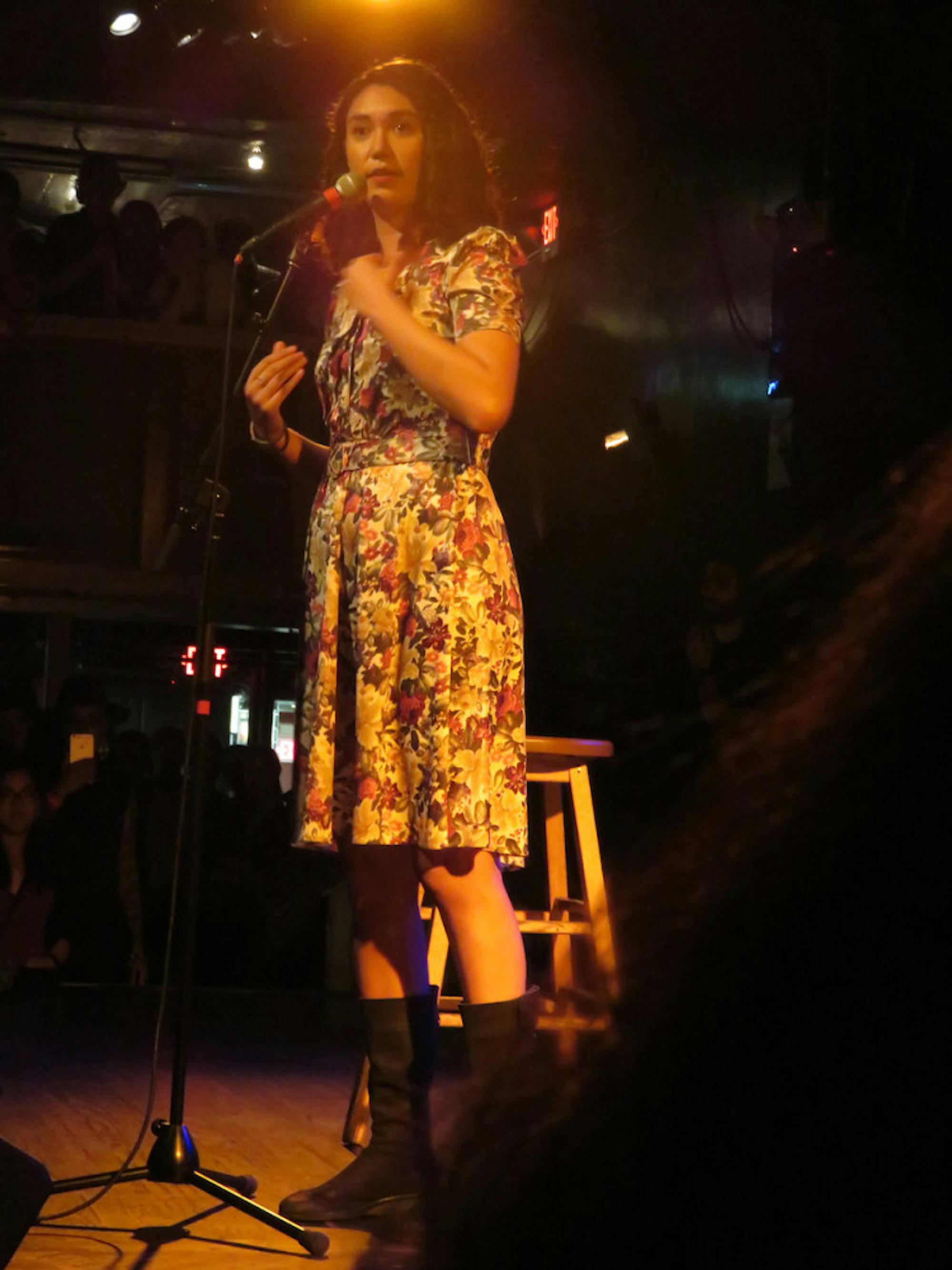When spoken word poets Sarah Kay and Andrea Gibson come together, magic happens. Their collaborative reading at the Paradise Rock Club on Tuesday was a melding of art forms. With interspersed bursts of song and references to creators like Beethoven and Van Gogh, Kay and Gibson showcased the blurred lines between artistic mediums. With their singing voices and theatrical gestures, the poets themselves seemed to embody a blend of the arts.
When the Daily asked Kay what she would be if she were a form of art, she said, “I really love theater, that’s what I grew up loving, but more realistically, photography. Both my parents are photographers.”
Kay opened the performance by reciting her poem, "Astronaut,” which told the story of an astronaut who takes an impromptu day off from work. It sounded as though it had been taken from a children’s storybook, and started with an excerpt from the lullaby, “I See The Moon.”“I see the moon, the moon sees me. The moon sees somebody I don’t see,” Kay sang, drawing in the audience with her soft voice.
In the second work, whose title was unannounced, Kay echoed the child-like innocence of the first. The poem is based on a childhood memory Kay had of letting a raccoon into her aunt and uncle’s house because she thought it was a cat. At the end of the poem, Kay likened the memory of the raccoon entering the house to a new lover entering her life. This point in the reading marked a transition to a fascinating, complicated subject: love. Kay’s verse brimmed with striking images that perfectly encapsulate the way it feels to love someone.
In “Dreaming Boy,” the third poem Kay read, she said, “The first time I kissed a boy, he was so tall, his lips so soft. / I dreamt of the ocean for weeks, never in control of my limbs.” Later in the reading, Kay recited a poem that recounted a breakup in Whole Foods. The location of the breakup was vital to the poem, demonstrating that the obscure details of a relationship are oftentimes the most important.
After Kay recited “Dreaming Boy,” she left the stage and Gibson came out to perform a set. Gibson’s first poem was also a love poem, in which they passionately proclaimed that their lover made them feel like they could win the lottery with a parking ticket.
Along with love, gender and sexuality are important themes in the works that Gibson recited. Gibson described one poem as a scathing address to the men who catcall their girlfriends. In another poem, Gibson compared their gender identity to their love for being on the road, saying that they always feel most comfortable in the gray area between two points.
One of the most harrowing poems that Gibson recited was “Photoshopping My Sister’s Mugshot,” a work Gibson wrote about their little sister’s drug addiction. This poem was markedly different from Gibson’s others. Before they recited it, they made a point of asking the audience members not to record it because of its emotional significance to them. Gibson’s pain was palpable as they expressed the urge to crop out all the areas of their sister’s life that had been destroyed by drugs so that only the beautiful parts remained.
Gibson’s next poem, which grieved the loss of members of the LGBTQ+ community at the Pulse nightclub in Orlando, was equally heart-wrenching.
This poem introduced terrorism as another important topic in Gibson and Kay’s poetry. After Gibson’s set, Kay came out and spoke to the audience about her experience of 9/11 at age thirteen. Not long after the incident, Kay attended her first spoken word performance. Whereas acts of terror destroy spaces for certain groups of people, said Kay, spoken word creates space. Kay went on to recite a poem that explored her experience texting a friend to make sure they were safe after an act of terror.
Although the reading explored many dark, heavy topics, it ended with a tone of hope, which was demonstrated by two lines from the penultimate poem that Gibson recited: “I watched a dandelion lose its mind in the wind / and when it did, it scattered a thousand seeds.”
Poets Sarah Kay and Andrea Gibson recite poems about love, tragedy at the Paradise Rock Club






